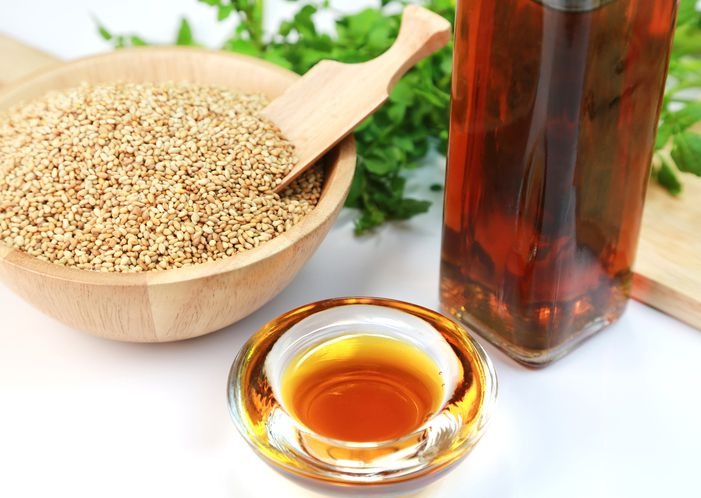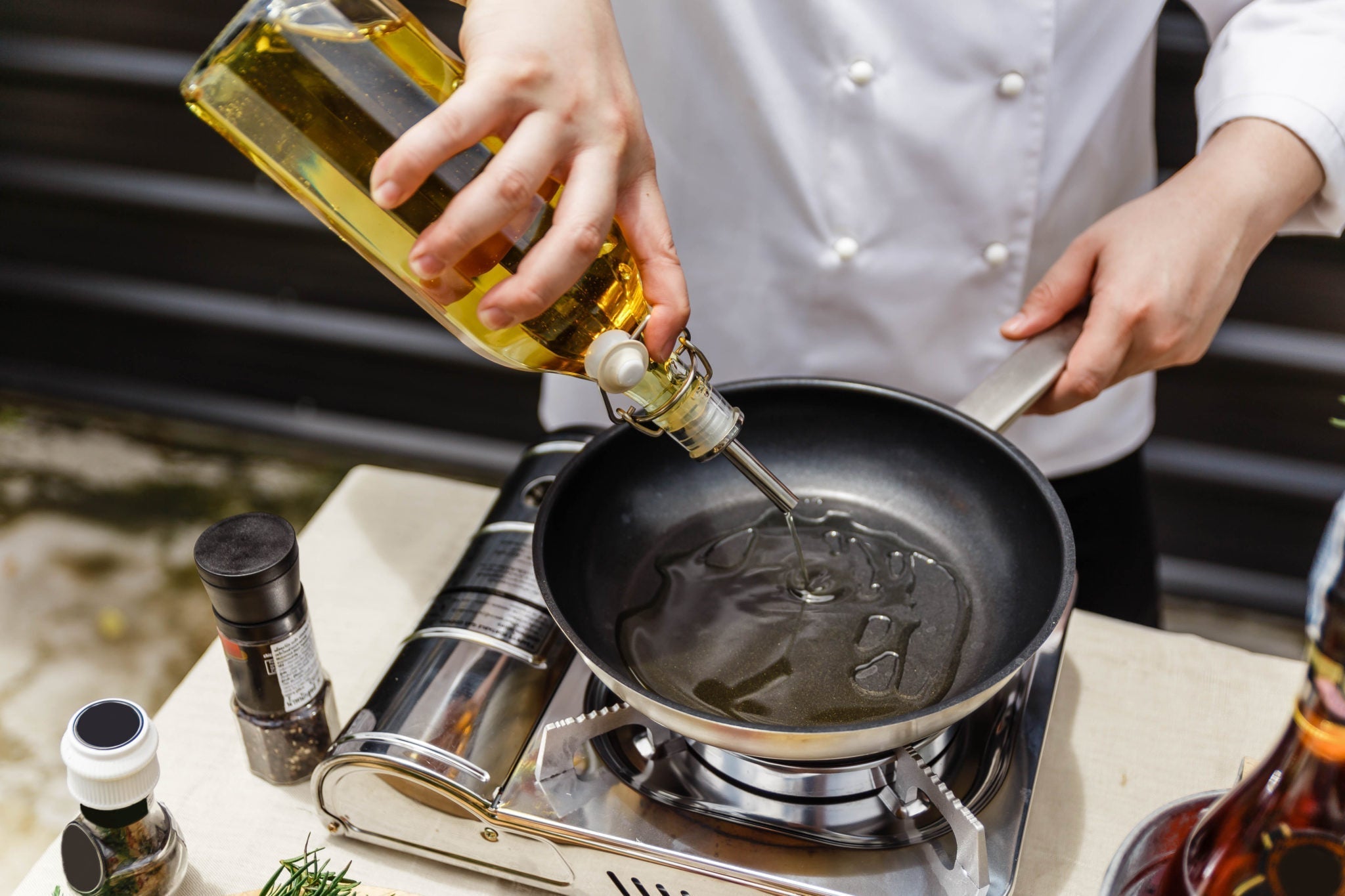Anyone who enjoys the art of cooking knows that the key to making a perfectly cooked piece of salmon lies not only in the fish itself but also in the oil used for cooking. If you've ever wondered what oil to cook salmon in for the best taste and texture, you're not alone. This article dives deep into the science and art of using different oils to cook salmon to perfection.

Why is the Choice of Oil Important?
The type of oil you choose can significantly impact the flavor and texture of your salmon. Oils have unique properties such as smoke points and fatty acid compositions, which can either enhance or detract from the fish's natural flavors. Therefore, understanding the characteristics of different oils is crucial for any culinary enthusiast.
Smoke Points Matter
The smoke point of an oil is the temperature at which it starts to break down and produce smoke. Cooking at or above an oil's smoke point can result in a burnt flavor and the release of harmful compounds. Therefore, selecting an oil with a suitable smoke point for cooking salmon is essential.
Salmon is often cooked at medium to high heat, so youll want to choose oils with smoke points above 375F (190C). Some suitable options include avocado oil (520F), canola oil (400F), and grapeseed oil (420F). Always keep smoke points in mind to avoid unpleasant flavors and maintain the nutritional integrity of your dish.

Best Oils for Cooking Salmon
Olive Oil: The Classic Choice
Olive oil is a favorite among cooks for its versatility and flavor. It offers a rich taste that can complement the natural flavors of salmon beautifully. While extra virgin olive oil has a lower smoke point (375F), regular or light olive oil has a higher smoke point (465F), making it more suitable for higher heat cooking methods like frying or grilling.
Avocado Oil: The Nutrient Powerhouse
Avocado oil is another excellent choice for cooking salmon due to its high smoke point of 520F. It has a mild flavor that won't overpower the fish, and it's packed with beneficial fats and nutrients. This oil is especially good for high-heat cooking methods such as grilling and searing.
Canola Oil: The Balanced Option
Canola oil is often touted for its neutral flavor and medium-high smoke point (400F). Its a great option if you want the fish's flavor to be the star of the dish. Additionally, canola oil is low in saturated fat and high in omega-3 fatty acids, making it a heart-healthy choice.
Grapeseed Oil: The Versatile Contender
Grapeseed oil is a versatile oil with a high smoke point (420F) and a neutral flavor, making it suitable for a variety of cooking methods. Its light taste allows the flavor of the salmon to shine through without interference.
Coconut Oil: The Unique Option
Though not as commonly used for cooking salmon, coconut oil can provide a unique flavor twist. Its smoke point is around 350F, so it's better suited for lower-heat cooking methods. The mild coconut flavor can add an interesting dimension to your salmon dish.

Cooking Techniques and Oil Pairings
Pan-Seared Salmon
For a crispy skin and succulent interior, pan-searing is a popular method. Use oils with higher smoke points like avocado oil or grapeseed oil for the best results. Preheat your pan, add the oil, and let it heat until shimmering before placing the salmon skin-side down. Learn more about pan-searing.
Grilled Salmon
Grilling salmon can impart a smoky flavor that pairs well with the fish's natural oils. Here, avocado oil or light olive oil works best due to their high smoke points. Brush the oil onto your salmon fillets before placing them on the grill. Check out our guide on grilling techniques.
Oven-Baked Salmon
Baking salmon is a foolproof method that retains the fish's moisture. Olive oil or canola oil can be drizzled over the fillets or used in a marinade. Bake at a moderate temperature (around 375F) for optimal results. Discover more about oven-baking.

Health Benefits of Different Oils
Olive Oil
Rich in monounsaturated fats and antioxidants, olive oil is known for its heart-health benefits. It's also anti-inflammatory and can help reduce the risk of chronic diseases. Read more about olive oil benefits.
Avocado Oil
Loaded with healthy monounsaturated fats, avocado oil is great for heart health and skin. Its high antioxidant content also offers anti-inflammatory benefits. Explore the benefits of avocado oil.
Canola Oil
Canola oil is high in omega-3 and omega-6 fatty acids, which are beneficial for heart health. It's also low in saturated fat, making it a healthier option for everyday cooking. Learn more about canola oil benefits.
Grapeseed Oil
Containing vitamin E and healthy fats, grapeseed oil is good for skin health and cardiovascular function. It's also an excellent source of antioxidants. Discover the benefits of grapeseed oil.
Coconut Oil
Although high in saturated fats, coconut oil contains medium-chain triglycerides (MCTs), which can provide quick energy. Its unique properties make it an option worth considering for specific recipes. Find out more about coconut oil benefits.
Final Thoughts
Choosing what oil to cook salmon in depends on various factors including cooking method, flavor preference, and health benefits. By understanding the properties and benefits of different oils, you can create salmon dishes that are not only delicious but also nutritious.
For more detailed information on maintaining a clean cooking environment, check out this clean kitchen guide.
FAQs
What is the healthiest oil to cook salmon in?
Many consider olive oil and avocado oil to be the healthiest options due to their high content of monounsaturated fats and antioxidants.
Can you cook salmon in coconut oil?
Yes, you can cook salmon in coconut oil, but it's best suited for lower-heat methods like baking due to its lower smoke point.
What oil gives the best flavor to salmon?
Olive oil is often preferred for its rich, distinct flavor that complements salmon well. For a more neutral flavor, grapeseed oil and canola oil are excellent choices.
As an Amazon Associate, I earn from qualifying purchases.






Leave a comment
This site is protected by hCaptcha and the hCaptcha Privacy Policy and Terms of Service apply.